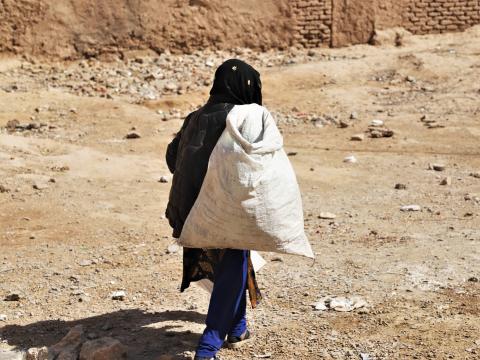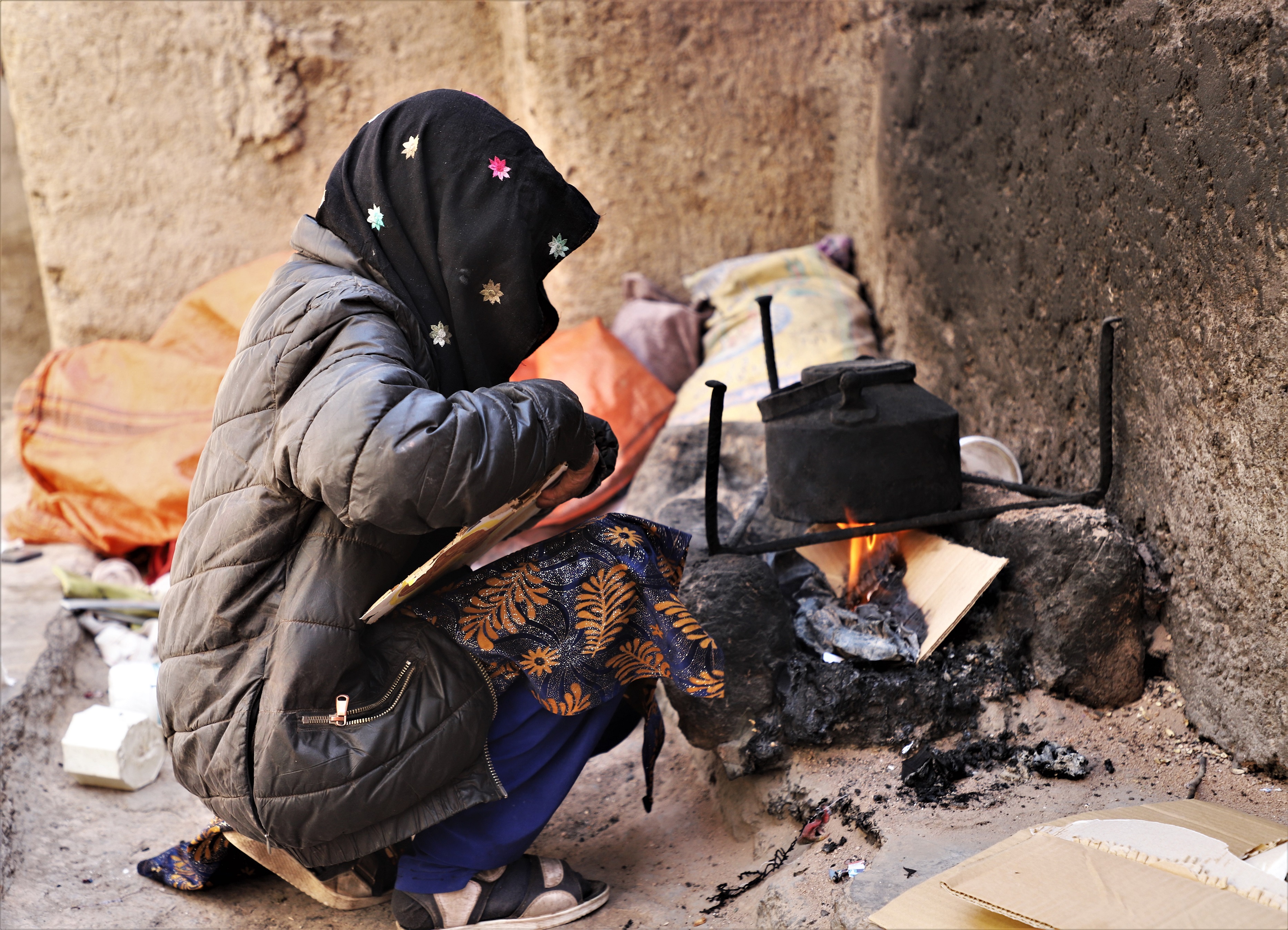A knock on the door: An old man’s demand for his 12-year-old child bride

Roqia had barely turned seven when her father Suliman - though reluctantly - agreed to marry her off. Back then, the young girl with her thick black braided hair who loved to play outside with her friends was barely aware what it had meant. Nothing changed except for the fact that her dad, who had borrowed a large chunk of money from a contact, agreed to give his daughter to the man - Bashir - who would, in exchange, turn the dept into a dowry.
Roqia lived quietly and undeterred with her family, attending school for a number of years, almost forgetting about the dowry that had been paid for her. But now, five years later, Roqia’s husband has returned. His uncomfortable visits to the family’s home in the western Afghan city of Herat are frequent, his knocks on the door regular, his demands louder each time: Bashir, an older man who is already married and even has grandchildren who are similar in age to Roqia, wants to take home his bride, he says. Today Roqia is 12 years old and knows one thing: she wants to go to school and play with her friends; she doesn’t want to be married.
“Getting a divorce is the only dream I have in my life,” she tells us, crying.
Afghanistan is one of the world’s poorest countries that has, over decades, seen fragile government structures and few social services for its 40 million people. Child marriage is unfortunately common - although, according to the constitution, illegal. However, even before last August’s government change, according to the internal data recorded by WVA at least 183 child marriages were recorded in Herat and its neighbouring Badghis province between 2018 and 2019; and it is estimated that throughout the country, at least 28 percent of Afghan women between the ages of 15-49 were married before the age of 18.
Just like Roqia’s father, many families opt to marry their daughters off to pay back personal debts or settle disputes. “My mother and siblings were crying when they heard about my engagement, but [our family] had no one who could take care of us and even though my father didn’t want to marry me off, the says he didn’t have a choice,” Roqia reported.
Her father Suliman had long been sick and unable to work due to back problems. He had hoped the money he borrowed from his acquaintance Bashir would help pay for medical costs to fix his back; he had wanted to be able to quickly return to work, and to pay off his debt. Instead, he’s still bed-bound and his condition keeps worsening.
For years, Roqia and her siblings have stepped in as the family’s only breadwinners: They would get up early in the mornings, sorting through garbage all day, hoping to find anything useful to sell - such as metal scraps and plastic. During Herat’s cold winters, plastic was also used for heating and fueling the family’s small cooking stove. The toxic smoke would sit heavily in their house, filling the family’s lungs, and making them cough.

Long decades of conflict and turmoil have bought Roqia’s mother depression and frustration. “When she gets angry, she just leaves home and walks away,” Roqia said, the responsibility of having to provide for her family resting on her heavily. Her mother had wished to see a doctor or psychologist, but poverty made it impossible. Even though Roqia dropped out of school to work full time, the money she was bringing home was just about enough to survive - but not sufficient to save towards the outstanding debt owed to Bashir: US$1,000.
The humanitarian catastrophe that has gripped Afghanistan since the fall of the last government in August is complex and multi-faceted; triggered by an economic collapse that has thrown almost everyone - 95 percent of the population - into poverty. Fears are mounting that a growing number of young girls are at risk of being married off. World Vision’s child protection work is aiming to reduce these numbers. In the last six months alone, we have trained 1,980 community members and volunteers on basic child protection, and have offered psychological support to 359 children. Long term, we’re hoping to add to people’s economic stability while ensuring that families don’t have to resolve to negative coping mechanisms like Roqia’s father.

So far, Roqia’s family has kept Bashir at bay, but it’s unclear how much longer they will succeed. Once a student, Roqia was forced to quickly adjust to working full time; but she refuses to adjust to marriage. “A girl should only get married when she is mature enough,” she cries. She doesn’t want to go home with Bashir. “I want to divorce this man,” she says.
(*All names changed to protect people’s identity.)